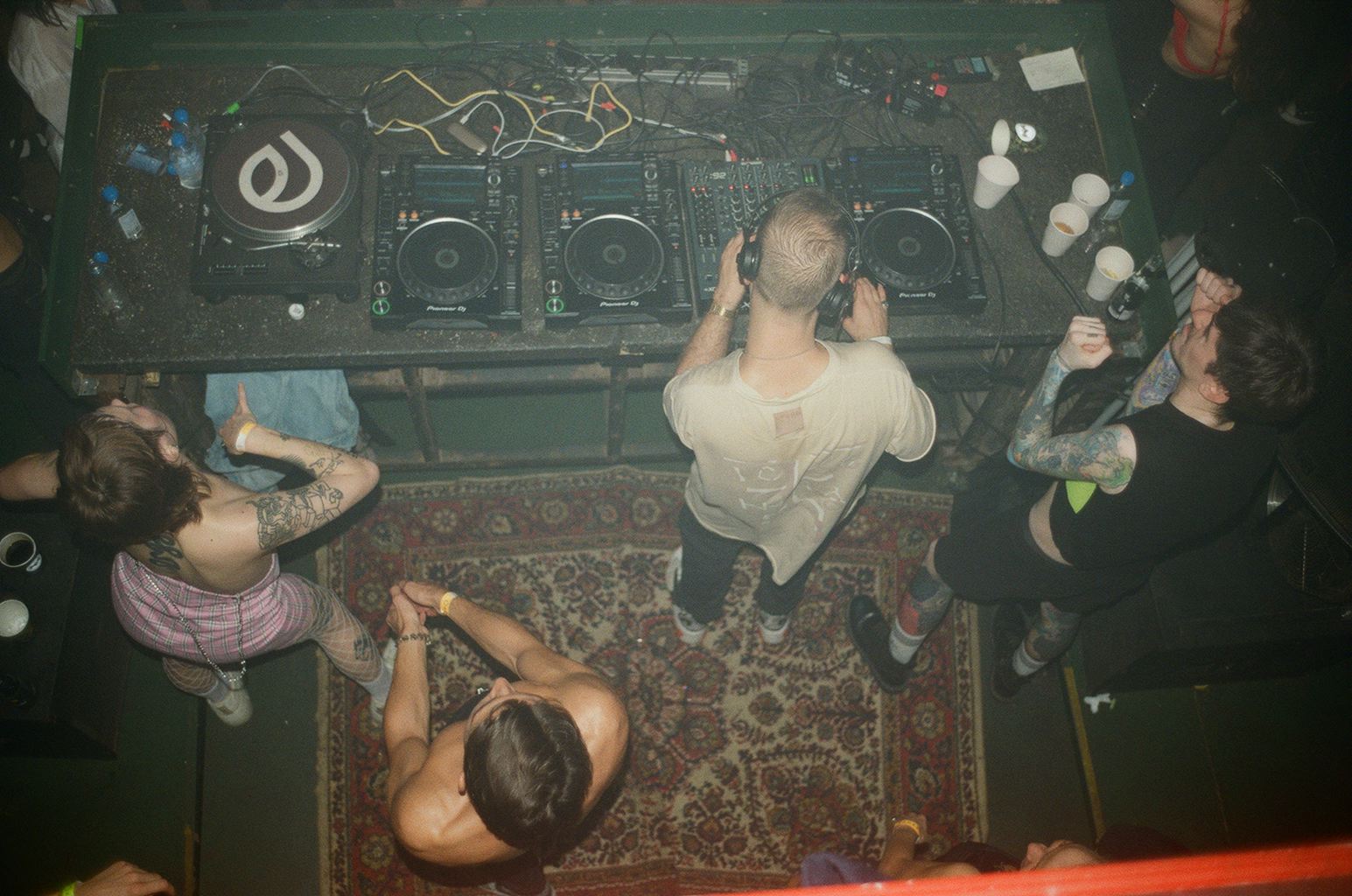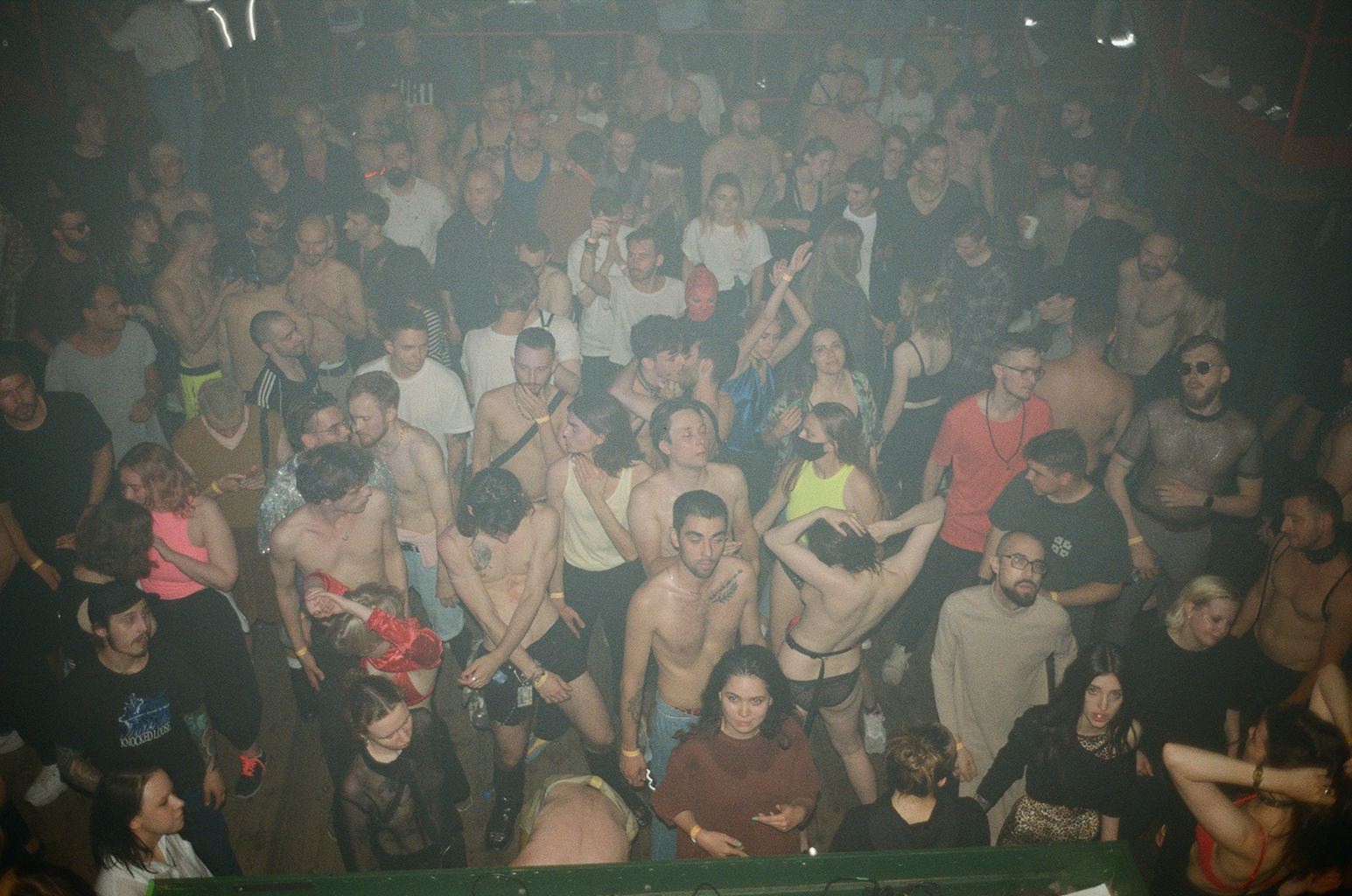Picture a cavernous hall in a former machinery plant, pitch black save for a harsh, pulsing strobe that glints off harness-clad torsos jacking to a 4/4 beat. These are scenes that, many moons ago, played out one weekend after another in New York, London and Berlin. But Moscow? Well, since 2017, Popoff Kitchen has brought just this to the Russian capital, offering “a different side of LGBTQ+ culture with a focus on techno music and sexual liberation,” says its founder, Nikita Egorov-Kirillov. From an outsider’s perspective, sexually liberated expressions of queerness aren’t necessarily what first comes to mind when thoughts turn to Russian nightlife. As has been widely reported, including by us, the country’s LGBTQ+ communities have been subject to targetted systemic persecution, with laws to further curtail the rights of queer Russians proposed as recently as this year. Still, queer expression has thrived in spite of, and arguably in reaction to, this adversity — both on the internet and underground.
The creation of Popoff Kitchen three years ago was fuelled by Nikita’s desire to create “a safe space for LGBTQ+ individuals, where they’d be able to feel real freedom and be surrounded by a like-minded crowd,” he says. Not wishing to “go deep underground and do private events” he came up with a tactfully euphemistic PR strategy to lure the right crowd. “I created the world of Popoff Kitchen and filled it with humourous codes: DJs were ‘chefs’ and events were promoted as ‘cooking master-classes’, ‘dinners’, ‘brunches’, with ‘menus’ of instead of line-ups.” Indeed, head over to the party’s official Instagram, and you’ll find plenty of posts of strapping boys in their kitchens — though we wouldn’t recommend whipping up anything too technical in the (minimal) outfits they’re wearing. “These codes helped us to be visible and understandable by the guests that we were looking for, while avoiding interest from random people,” Nikita says.
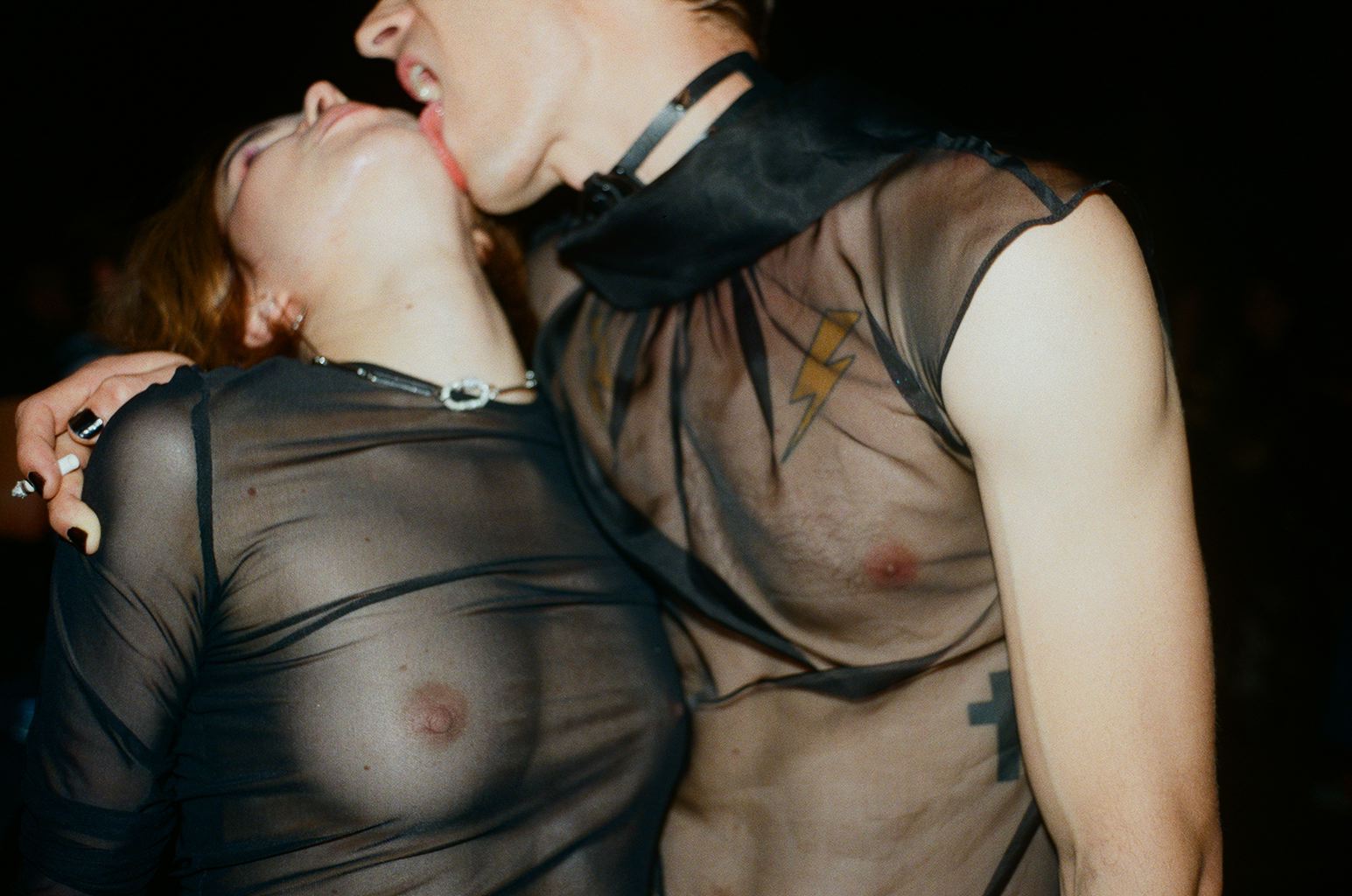
Naturally, as the party has grown, so has the range of people it appeals to. “When we just started, it was about us exploring our own sexuality, so the first three or four parties were men only. But once we’d established the core of the night, we opened our doors wider to invite other members of the LGBTQ+ community and open-minded people outside of it.” Today, a quick list of types you’ll find among the crowd at any given soirée includes: “guys in leather, twinks, bears, girls in fetish, half-naked people, boys in heels, some people in drag or BDSM gear” — a veritable queer pick-n-mix.
In plain terms, Popoff Kitchen’s a party where anyone’s welcome, provided that you leave your prejudices at the door, and, preferably, your inhibitions. With a crowd well acquainted with what goes on in the darker corners of Berlin parties like Berghain, Cocktail d’Amore or Pornceptual, Popoff Kitchen is one of few parties in Russia where similarly open approaches to sex are embraced and celebrated. It’s not an environment best suited to prudes. “We have guys like that here once in a while,” shares Stas Sarkisov, a Popoff Kitchen fanatic who hasn’t missed a single party in the last three years. “They see being open and footloose as weird and even embarrassing. They believe that ‘men should be men’. And here they see hairy guys in sequin dresses, a bunch of naked people pounding a couch into the ground, and sniffing each other’s armpits when they dance, rather than poppers.”
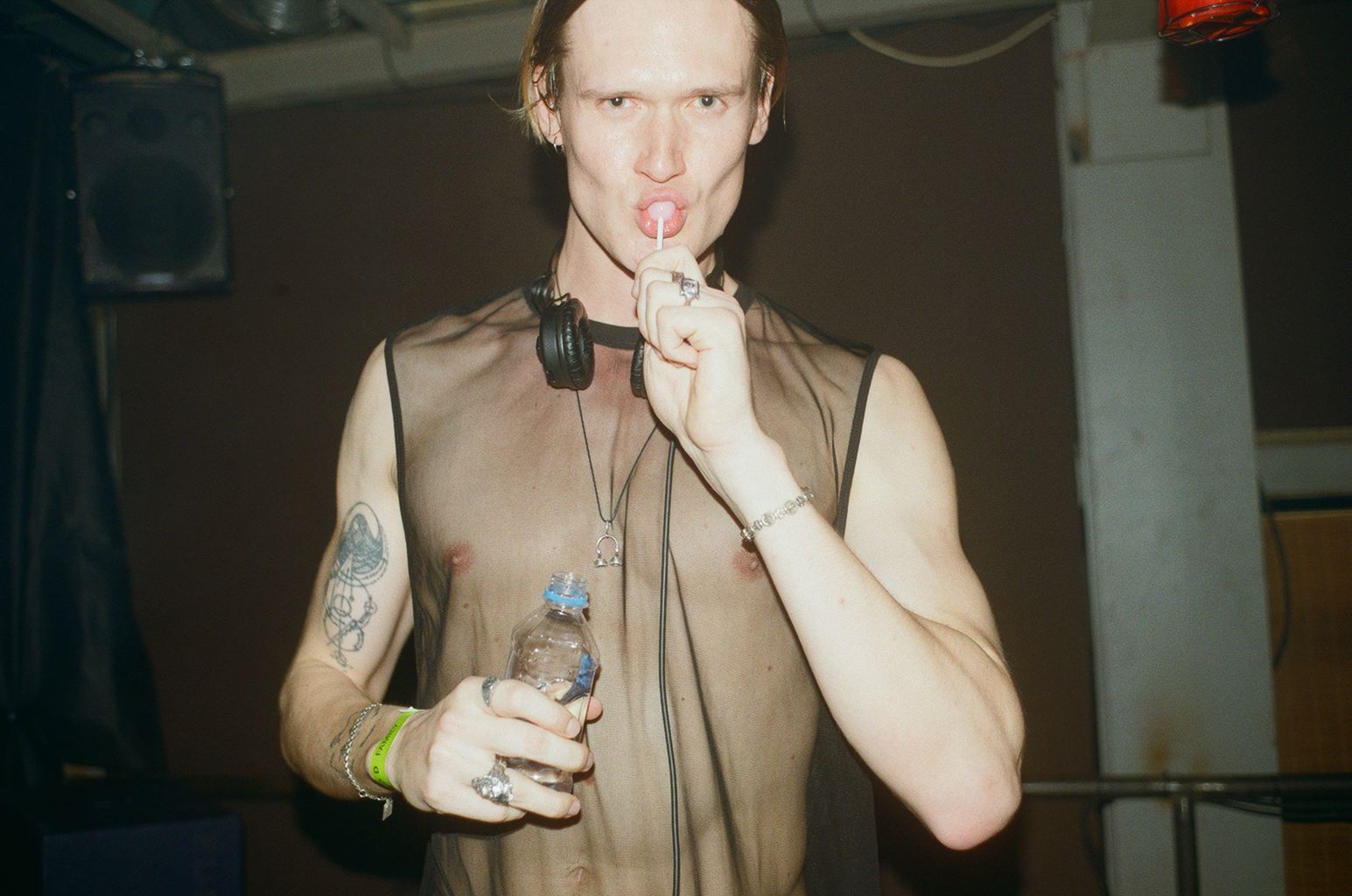
Cultivating such a libertine atmosphere wasn’t without effort. “Our first parties were quite modest, and we were all just exploring what could we do, how far we could go, what was allowed…” Nikita says. “Going from getting undressed and dancing half-naked, to sex on the dancefloor was a long path. Having reached it, though, we feel that we’ve created a real safe space, where everyone, no matter their gender or sexual orientation is able to be free and express their own sexuality.”
What distinguishes Popoff Kitchen from your average cruising bar is the same as what sets those earlier-mentioned Berlin parties apart: the music. Helmed by a crew of resident DJs, its policy allows for exploration, though generally keeps within the parameters of house, techno and disco. “For me, Popoff Kitchen represents freedom of self-expression, and the joy of just being myself and sharing that with others through my music,” says Kirill Shapovalov, a since-day-one resident who’s whipped up a Popoff Kitchen mix exclusively for i-D. “My first time playing at Popoff Kitchen changed my life,” says Raumtester, a fellow resident. “I used to play rather robotic, slightly inhuman electronic music before meeting Nikita. But specifically for this debut night, I dug out some classic house bangers and some secret ‘make-you-dance’ weapons from my archive. The party was insane! It was the first time I took off my shirt. Popoffers now sometimes even call me ‘the naked DJ’, because I’ve since taken a bit of a fancy for playing topless and melting into the crowd. It really allowed me to become more me.”
More than a conduit for self-expression, Popoff Kitchen sees itself as a contributing force in nuancing the perception of queerness in Russia. Despite the widely-reported resurgence in state-sanctioned LGBTQ+ discrimination, Nikita reflects on the situation with refreshing optimism, highlighting the increase in features of openly queer and trans individuals in mainstream Russian media outlets, such as trans socialite Natalia Maximova’s April 2020 Russian Tatler cover. Through its parties, Popoff Kitchen is introducing facets of queer expression that have, until now, remained unfamiliar in Russian cultural contexts. “We were the first ones to bring an underground queer party atmosphere to Russia, and I think that with our music and our views, we’re changing the opinions of conservative Russian people,” Kirill says. “We’re making them understand what queer culture is really about and I’m really proud to be involved in that process.”
It also bears noting that, while their message may not align with Russia’s heteronormative social norm, it’s hardly anti-Russian either. “I love Russia. I love the Russian language, Russian culture, Russian history, and I’m really proud to come from the country which has such a heritage,” Raumtester says. To him, the country’s burgeoning queer nightlife community exemplifies the core Russian values of “a strong rebellious spirit combined with high skills in self-preservation, despite restrictions and obstacles”.
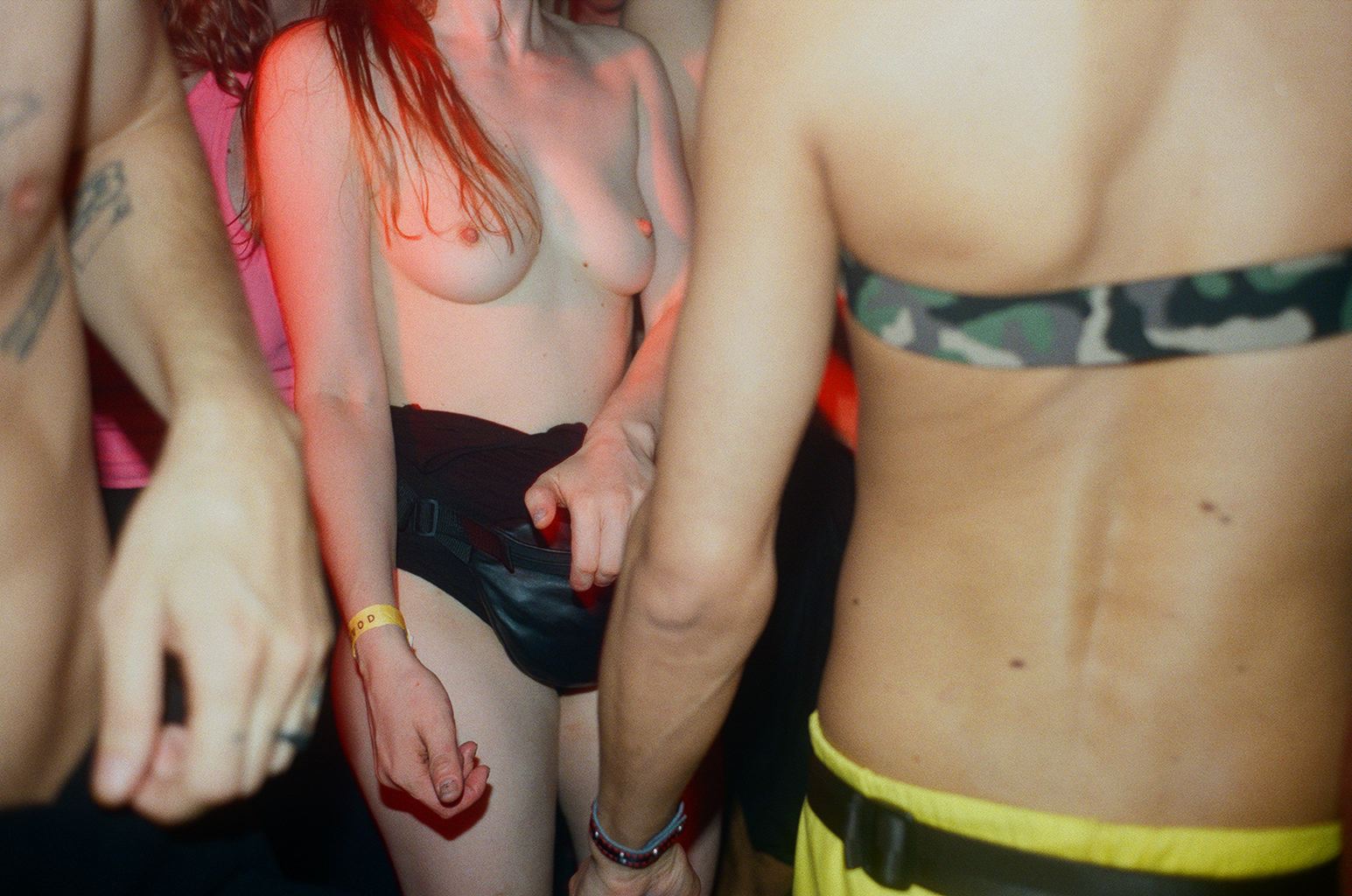
Of course, in recent times, a major restriction on the Popoff Kitchen team’s plans to continue in its missions has been the coronavirus pandemic, with Russia among the countries worst hit. The queer communities and queer-owned businesses have been particularly affected, offered “no support from the government; we were left in survival mode,” Nikita says. “Everyone had to figure out how to get over it by themselves.” Forced to cancel tours to Asia and the US in March, the team refocussed their attention on an initiative to empower a community that felt otherwise abandoned: #queerrussianpride, accompanied by a month-long online LGBTQ+ festival organised in collaboration with queer media platform Ozine. “Pride marches are officially banned in Russia, so I decided to find a way to speak out loud about the Russian LGBTQ+ community and unite queer people from across the country to make us visible — digitally, at least,” Nikita explains. “Everyone who uses #russianqueerpride no matter their location, gender or sexual orientation is automatically able to join this Pride Parade.” Supported by various Russian LGBTQ+ organisations, as well as the organising bodies of Pride parades in Kyiv and Tbilisi, #queerrussianpride launched on 28 June (the anniversary of Stonewall), with performances and speeches of solidarity from artists, musicians and activists livestreamed of Ozine and Popoff Kitchen’s respective Instagram accounts.
When restrictions on large-scale gatherings in Russia first lifted in late summer, Popoff Kitchen held a physical showcase — with temperature checks at the entrance and sanitiser stations peppered about the space. What resulted was HOROVOD, a 24hr party in collaboration with Kyiv’s leading queer party VESELKA at Mutabor, a repurposed former manufacturing plant. Taking its name from what Nikita describes as a Russian and Ukranian “forerunner of rave” — a round dance where, traditionally, couples would meet — it was a testament to the resilience of Russia’s queer community and its ability to rebound against even the most punitive circumstances.
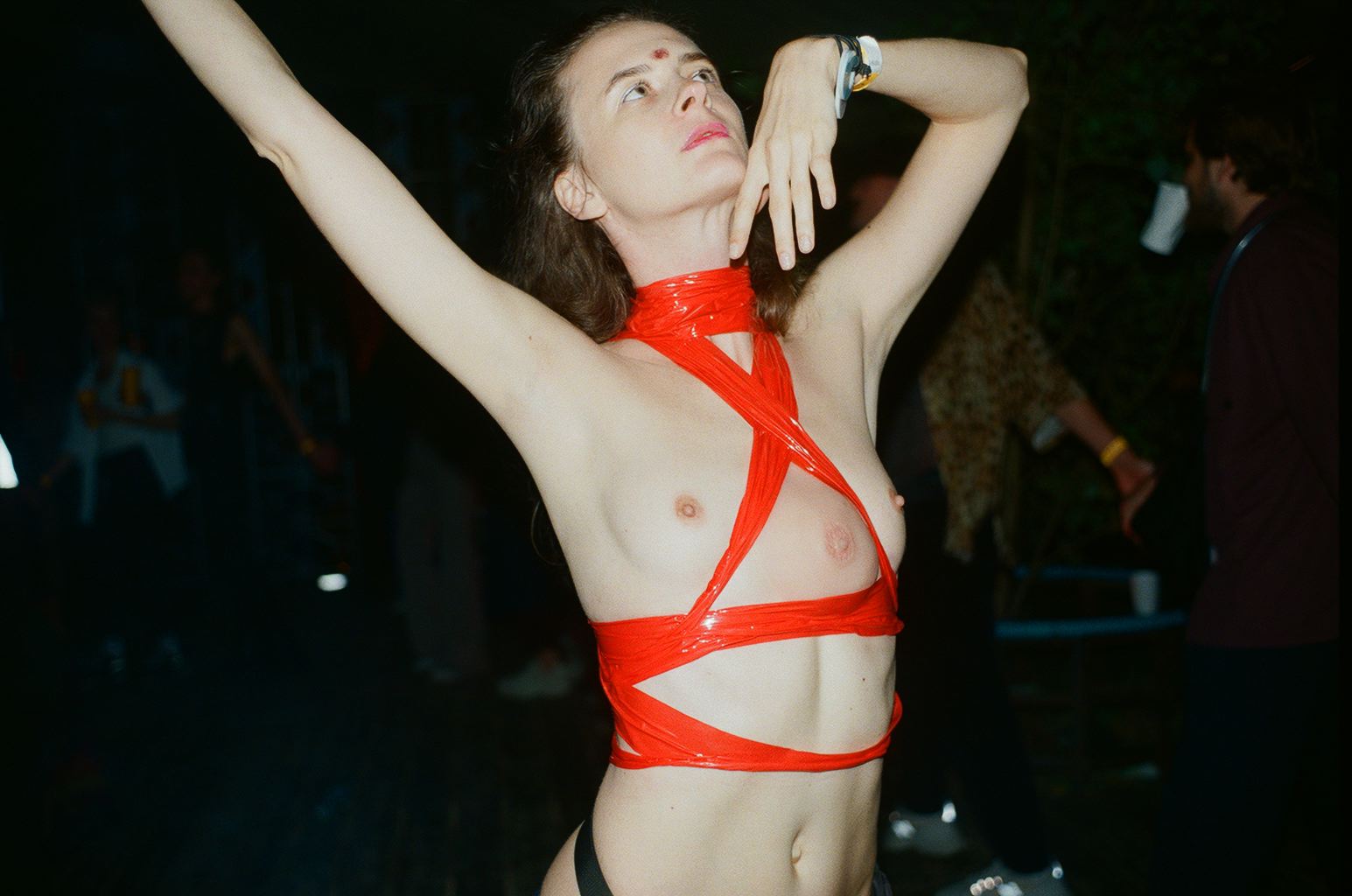
With case numbers in the country now sharply on the rise, it looks like plans to advance Russia’s queer nightlife frontier are on ice for the time being. This has not, however, dampened the spirits of the people who will be driving it ahead when the time comes. “The emergence of Popoff Kitchen in the cultural life of Moscow, and later St. Petersburg and the rest of the country, has been revolutionary for Russian queer culture,” says party resident Séxstasy. “The queer scene is growing rapidly and we still have a lot to do, but every day there are more and more new artists, painters, performers who are rethinking their creativity through sexuality. They learn more about us, they stop being afraid of us, they write and talk about us. A new chapter is beginning in Russian nightlife and we are the ones who will write it.”
